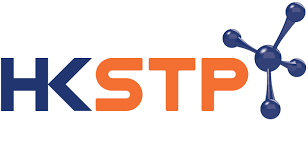Federated learning Hong Kong is an approach to machine learning that is gaining traction in healthcare industry. It enables organizations to leverage the collective intelligence of multiple devices without compromising data privacy. In this guest post, we will explore the opportunities and applications of federated learning in Hong Kong’s healthcare industry.
Introduction to Federated Learning in Healthcare
Federated learning Hong Kong is a machine learning approach that enables organizations to train machine learning models on decentralized data sources without centralizing the data. In healthcare, this means that patient data can be used to train models without compromising patient privacy. Federated learning has the potential to revolutionize healthcare by enabling organizations to leverage the collective intelligence of multiple devices and data sources.
Benefits of Federated Learning in Healthcare
Federated learning offers many benefits for healthcare organizations in Hong Kong, including:
Improved accuracy: Federated learning Hong Kong can improve the accuracy of machine learning models by leveraging data from multiple sources.
Enhanced privacy: Federated learning enables organizations to train models on decentralized data sources without compromising data privacy.
Cost savings: Federated learning can reduce the cost of data storage and processing by leveraging decentralized data sources.
Applications of Federated Learning in Healthcare
Federated learning has many potential applications in healthcare in Hong Kong, including:
Medical image analysis: Federated learning can enable healthcare organizations to train machine learning models on medical images without centralizing the data.
Disease diagnosis: Federated learning can enable healthcare organizations to train machine learning models to diagnose diseases without compromising patient privacy.
Drug discovery: Federated learning can enable healthcare organizations to train machine learning models on decentralized data sources to discover new drugs and treatments.
Challenges of Implementing Federated Learning in Healthcare
Implementing federated learning in healthcare can be challenging, as it requires careful planning and execution. Some of the challenges include:
Data quality: Federated learning requires high-quality data from multiple sources, which can be challenging to obtain.
Communication: Federated learning requires effective communication between different devices and data sources, which can be challenging to achieve.
Security: Federated learning requires robust security measures to ensure that patient data is protected.
Future of Federated Learning in Healthcare
The future of federated learning in healthcare in Hong Kong is bright. As the adoption of federated learning grows, we can expect to see more innovative solutions and applications emerging. Some potential future developments include:
More applications in personalized medicine: Federated learning can enable healthcare organizations to develop personalized treatments and therapies based on patient data.
Improved interoperability: Federated learning can enable different devices and data sources to communicate more effectively, leading to more accurate and efficient machine learning models.
In conclusion, federated learning is a powerful tool that can enable healthcare organizations in Hong Kong to leverage the collective intelligence of multiple devices and data sources without compromising data privacy. While there are challenges to implementing federated learning in healthcare, the benefits are significant. As the adoption of federated learning grows, we can expect to see more innovative solutions and applications emerging, driving growth and innovation in Hong Kong’s healthcare industry.




